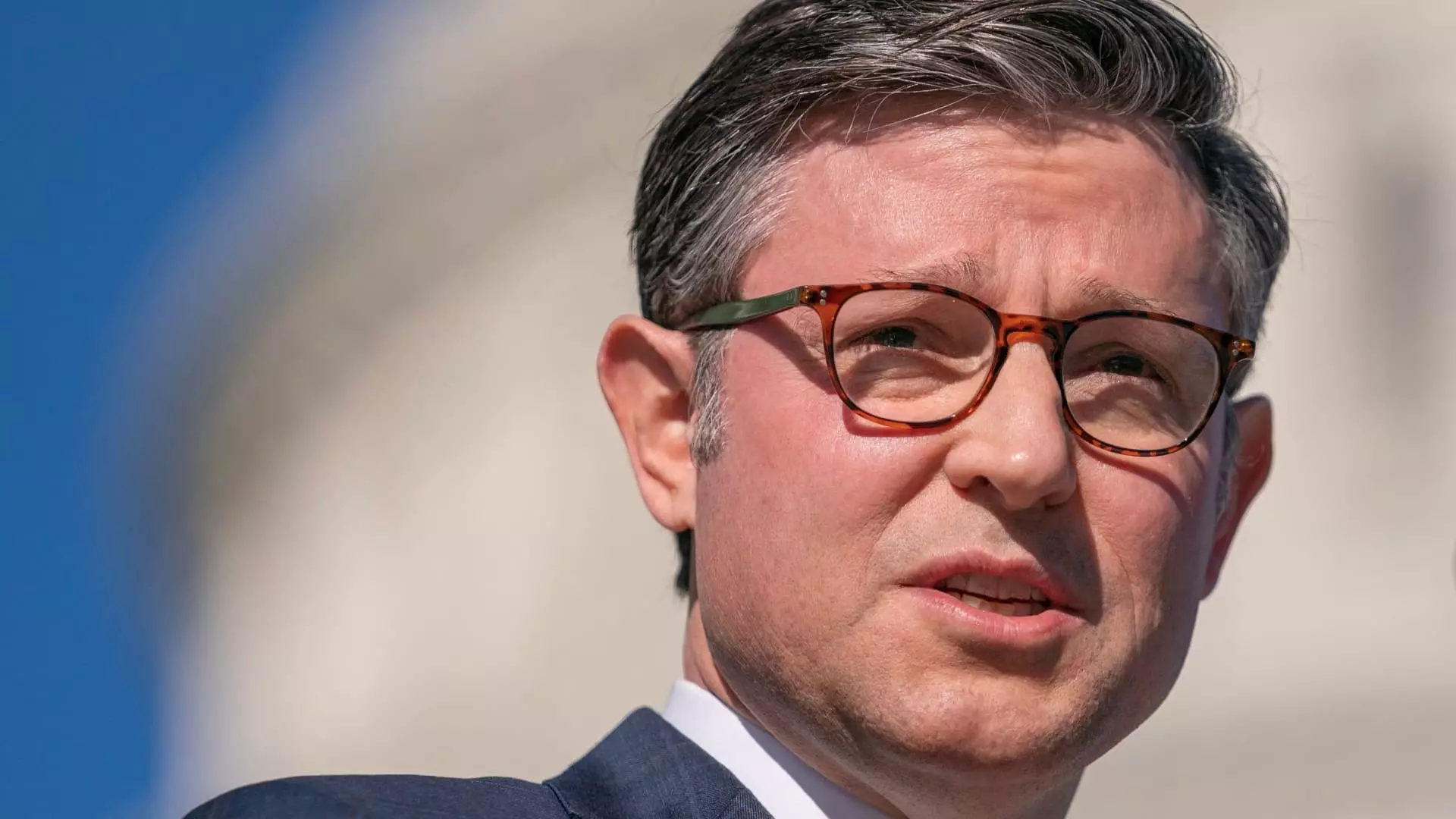The unfolding drama surrounding former Congressman Matt Gaetz and his potential appointment as U.S. attorney general continues to draw scrutiny, particularly in light of House Speaker Mike Johnson’s recent comments. As the House Ethics Committee wraps up its investigation into Gaetz, the implications of its findings and the timing of their release have become focal points of debate. Johnson’s stance raises questions not only about accountability but also about the boundaries of congressional ethics and the responsibilities of Senate confirmation.
The House Ethics Committee’s investigation into allegations of Gaetz’s sexual misconduct, drug use, and other inappropriate behavior has been contentious from the outset. The committee’s purview is explicitly limited to current members of Congress, a fact that informs Johnson’s assertion that the probe should come to an end following Gaetz’s abrupt resignation. By stepping down just before the committee was poised to vote on releasing its report, Gaetz seemingly evaded the consequences of the committee’s findings. This has led some to criticize the ethics process as ineffectual, particularly concerning high-profile figures who can leverage their political power to escape scrutiny.
Johnson, speaking on CNN’s “State of the Union,” described the then-unfinished report as a “Pandora’s box,” indicating that releasing it could potentially unleash unforeseen repercussions not only for Gaetz but for the integrity of the House itself. This characterization suggests that Johnson is deeply concerned about the implications of politicizing the Ethics Committee’s work, a sentiment echoed by many who believe that such investigations should primarily hold functioning politicians accountable, rather than delving into the affairs of private citizens.
While Johnson advocates for maintaining the confidentiality of the Ethics Committee’s draft report, others believe transparency is crucial. Senator Markwayne Mullin’s call for the release of the report spotlights a key tension in the discussion—how to balance transparency in government with the need for due process. Mullin argues that Senate confirmation process must involve a thorough review of candidates’ backgrounds, including potentially damaging information contained in the Ethics Committee’s report.
This raises an important question: should the Senate trust a rough draft inquiry into an appointee’s character without access to the full findings? The idea that the Senate should conduct its own review independent of the Ethics Committee’s work places the emphasis on the need for a rigorous vetting system to ensure candidates meet ethical standards, particularly for a role as prominent and influential as that of the U.S. attorney general.
The Implications of Gaetz’s Allegations
The sustained allegations against Gaetz—particularly claims relating to sexual misconduct involving minors—add a grave dimension to the ethical landscape of his potential confirmation. Although a federal investigation concluded without charges, the gravity of the claims cannot be understated. With new allegations surfacing, including eye-witness accounts of inappropriate behavior, the narrative complicates the ethical calculus surrounding Gaetz’s candidacy.
Additionally, these allegations raise broader societal questions about accountability and the behavior of public figures. If confirmed, Gaetz would be in a position to oversee the very justice department that investigated him, further entrenching a potential conflict of interest and calling into question the impartiality of federal investigations under his leadership.
As this situation unfolds, the need for accountability becomes increasingly evident. The tensions within the Republican Party regarding Gaetz highlight a fundamental divergence in how politicians are held accountable for their actions. Johnson’s reluctance to support the release of the Ethics Committee’s findings may be seen as shielding a party ally, an approach that risks reinforcing a culture of impunity. Conversely, calls for transparency—through release of the Ethics Committee’s report—advocate for a level of scrutiny that could set a precedent for future nominees, ensuring that the Senate confirmation process remains rigorous and informed.
The debate surrounding Matt Gaetz’s confirmation as U.S. attorney general not only spotlights individual accountability but also raises critical issues regarding the ethical standards and responsibilities of elected officials. It remains to be seen whether the integrity of congressional and judicial processes will prevail over political considerations. The outcome of this situation could significantly influence how ethics inquiries are handled in the future, and ultimately, how candidates for high office are vetted in an era of increased scrutiny.


Leave a Reply